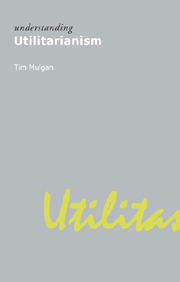9 - The future of utilitarianism
Summary
Utilitarianism tells us, not only what to think about particular issues, but also which issues to think about. In particular, utilitarianism tells us that the most important moral issues are those where the greatest amount of human happiness (or human misery) is at stake. While the happiness of presently existing people in our own society is certainly significant, its value is dwarfed by the welfare of the billions of people who already exist in other lands, and of all the people who might exist in the future. For the utilitarian, the most important moral issues are those relating to these two groups of people. Utilitarianism has always been, and continues to be, most interesting and most relevant when applied to changing social circumstances, or to issues that have been under-appreciated by other moral theories. The focus of this chapter is on outlining the questions raised by utilitarianism, rather than on any detailed exploration of particular answers.
A global ethic
Utilitarianism arose in Britain in the eighteenth and nineteenth centuries in a society of very limited democracy, widespread poverty and considerable corruption and inefficiency. The critiques and activities of utilitarians played a key role in improving this situation. In utilitarian terms, modern Western societies are much better today than in the days of the early utilitarians. But our global situation is, in many crucial respects, at least as bad. The world of international affairs is not democratic, and the gap between the world's richest and poorest nations (in terms of wealth, life expectancy, literacy, civil and political rights, or health) is far greater than the gap between rich and poor in even the most unequal individual country.
- Type
- Chapter
- Information
- Understanding Utilitarianism , pp. 167 - 178Publisher: Acumen PublishingPrint publication year: 2007



